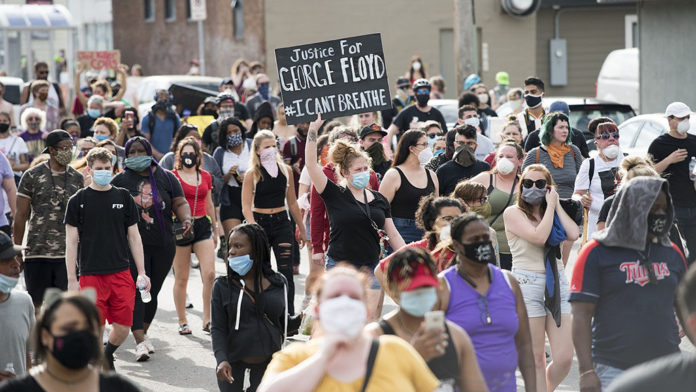
Emily Starling
Bill would ensure the first step towards ‘making our communities safer’
On Wednesday, March 3, House lawmakers passed the George Floyd Justice in Policing Act.
With this bill and trial, this is America’s chance to condemn systemic racism and to recognize the changes that need to be made.
This landmark police reform bill would ban choke-holds, no-knock warrants in certain cases, and prohibit racial and religious profiling, thus altering the judicial doctrine known as qualified immunity.
According to the 1982 U.S. Supreme Court decision in the Harlow v. Fitzgerald case, qualified immunity protects government workers, like police officers, from lawsuits unless their actions violate “clearly established” constitutional rules.
The bill originally was introduced in the summer of 2020 in response to the demands for racial justice after the death of Floyd and other racially charged murders across the country but was put on hold in the Senate, which at the time was Republican dominated.
If this vital piece of legislation makes it through the now Democrat-dominated Senate, along with being signed by President Joe Biden, it would put the systematic racism prevalent in this country on display as a hope for trust between police and communities of color.
Derek Chauvin, Floyd’s murderer, is currently on trial and facing charges of second and third-degree murder along with second-degree manslaughter.
Chauvin has pleaded not guilty to all of these charges.
Eric Nelson, Chauvins defense attorney, argued that Floyd’s death was from a combination of pre-existing health conditions and drug use.
However, a 9 minute and 29 second video showing Chauvin kneeling on Floyd’s neck, ultimately leading to his death, tells a different story.
Floyd pleaded for help for 4 minutes and 45 seconds, suffered a seizure for 53 seconds and was unresponsive for 3 minutes and 51 seconds, according to prosecuting attorney Jerry Blackwell.
Rep. Karen Bass (D-Calif.), the lead House sponsor for the bill, took to twitter to say “How many more videos of police violence do we need to see before we act?”
A similar sentiment is likely to be made at Derek Chauvin’s trial this month.
The democratic party has openly supported this bill, more specifically President Joe Biden.
“To make our communities safer, we must begin by rebuilding trust between law enforcement and the people they are entrusted to serve and protect,” a statement from the White House calling attention to the urgency and importance of the George Floyd Justice in Policing Act said. “We cannot rebuild that trust if we do not hold police officers accountable for abuses of power and tackle systemic misconduct – and systemic racism – in police departments.”
In order to be able to see true system change, the American people must continue to put pressure on our elected officials and hold them accountable when they do not effectively do their jobs.
“I am pleased that the House will vote next week on the George Floyd Justice in Policing Act,” President Biden tweeted on Feb. 25. “I encourage the House to pass it. Following Senate consideration, I hope to be able to sign into law a landmark police reform bill.”
Although the bill is long overdue, it faces a tough challenge ahead in attempts to make it past the moderate Democrats and Republicans currently residing in the Senate.
“He [Joe Biden] certainly will be watching closely … at the time of George Floyd’s death he talked about this as being an event that really opened up a wound in the American public … racial injustice and inequality that many communities are experiencing every single day,” White House press secretary, Jen Psaki said, in reference to the George Floyd trial.







